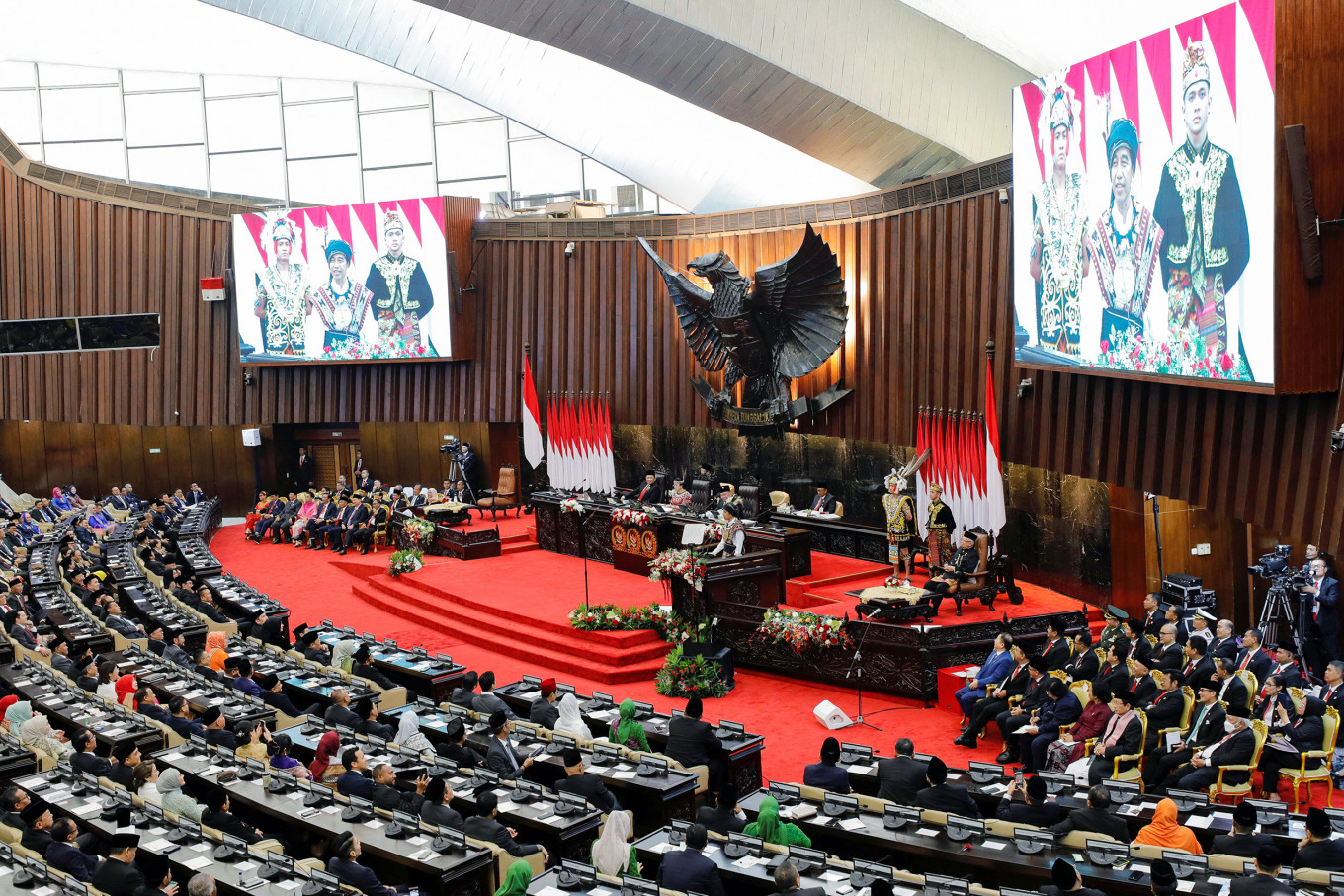Popular Reads
Top Results
Can't find what you're looking for?
View all search resultsPopular Reads
Top Results
Can't find what you're looking for?
View all search resultsThe Indonesian dream
Jokowi has remained steadfast in his commitment to advancing Indonesia as a global player, but the true test of his leadership will be in how he fulfills his vow to preserve the country's democracy as it plays out against the backdrop of the 2024 elections.
Change text size
Gift Premium Articles
to Anyone
T
o his detractors, President Joko “Jokowi” Widodo is a “man of contradictions”, which is what political analyst Benjamin Bland has called the country’s seventh president.
The most recent example of this was when Jokowi delivered the State of the Nation Sddress last Wednesday, during which he teased political parties seeking his direction ahead of next year’s elections, especially when it came to choosing which presidential candidates to support.
On a previous occasion, he defended his move to cawe-cawe (intervene) in the political parties’ hunt for his successor, which he claimed was for the good of the country.
Notwithstanding the controversy, we can hardly doubt President Jokowi’s commitment to transforming Indonesia into a global player, which requires its joining the ranks of the world’s biggest economies. His focus on infrastructure and now, the country’s mineral downstream industry, stand testament to his intention to realize his dream. After nine years in office, he seems to have been consistent in this regard.
Our previous leaders shared the same vision. What differentiates them is how they translated their vision into long- and medium-term development plans and executed policy.
In Jokowi’s case, his administration has created its Golden Indonesia 2045 vision as a road map to catapult the country into the world’s top five economies by its centennial anniversary. Not only does this vision aim for prosperity with a per capita income of US$23,199 in the next 22 years, but also democracy and justice for all.
Effective and transparent governance is among the essentials to meeting these goals and can be achieved by enhancing governance, combating corruption, bolstering legal institutions and ensuring public participation in decision-making. Investing in human resources is the most pressing need, however, given the fast-changing and ever more competitive world.
That is a big dream that necessitates not only hard work from all elements of the nation, but also strong leadership. In Jokowi’s words, this means a leader with “consistency” and “courage”.
Jokowi said his strategy to reach this dream included human capital development, pushing for more green economy policies and downstreaming commodity-related sectors. Over the past few years, his administration has been steadfastly banning mineral ore exports, despite international challenges against this policy.
“We must make the most of this opportunity. We will be at a great loss if we miss out on this opportunity, because not every country has it and there’s no guarantee that we will have it again,” he said.
Understandably, Jokowi wants whoever is elected his successor next year to continue, if not improve, the Golden Indonesia vision. Peaceful transition of power after the elections on Feb. 14, 2024 is therefore a must. Indonesia’s post-Jokowi presidents should not start from scratch, otherwise we will be left behind as other nations race toward progress.
Barring no unforeseeable changes, Central Java Governor Ganjar Pranowo, Defense Minister and Gerindra Party chair Prabowo Subianto and former Jakarta governor Anies Baswedan will be squaring off in the presidential election. None has named a running mate so far, a reflection of the ongoing tug-of-war within each electoral alliance.
Jokowi’s responsibility as incumbent is not to help his preferred candidate win, but to create a level playing field and an atmosphere that will allow Indonesians to choose the right leader. It is his job to make sure that the elections are free and fair, which means that the state apparatus maintains neutrality and candidates avoid misusing state facilities.
The coming year will be a deciding moment for Jokowi to prove his pledge to preserve democracy. One test he will face is withstanding the push for a constitutional amendment, which would only reinstate a New Order-type establishment. People's Consultative Assembly (MPR) Speaker Bambang Soesatyo and Regional Representative Council (DPD) Speaker La Nyalla Mattalitti, both allies of Jokowi, have indicated that the Constitution would be amended after the elections.
On the occasion of delivering his final State of the Nation Address next year, hopefully Jokowi will have settled any and all doubts about the future of Indonesian democracy.











